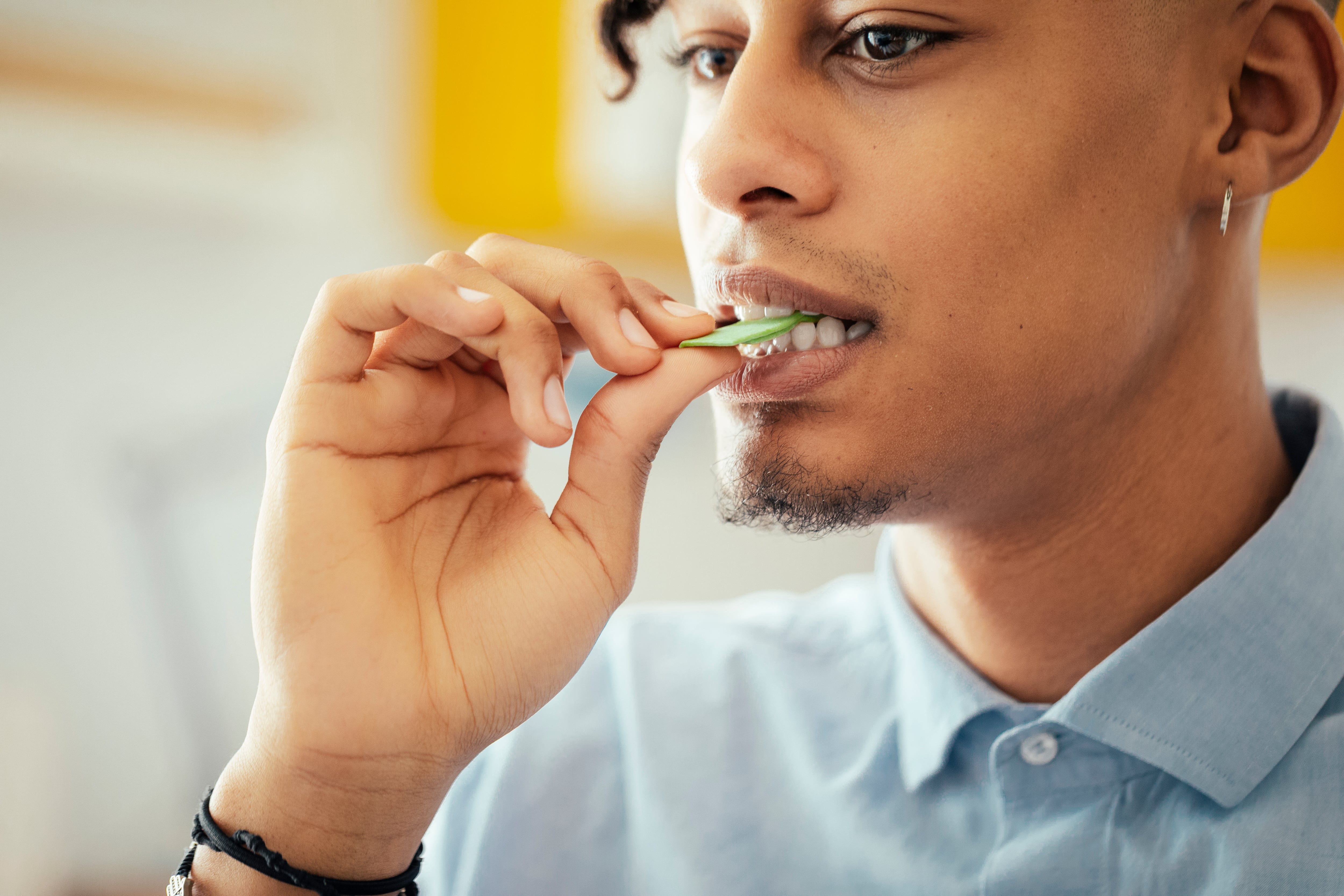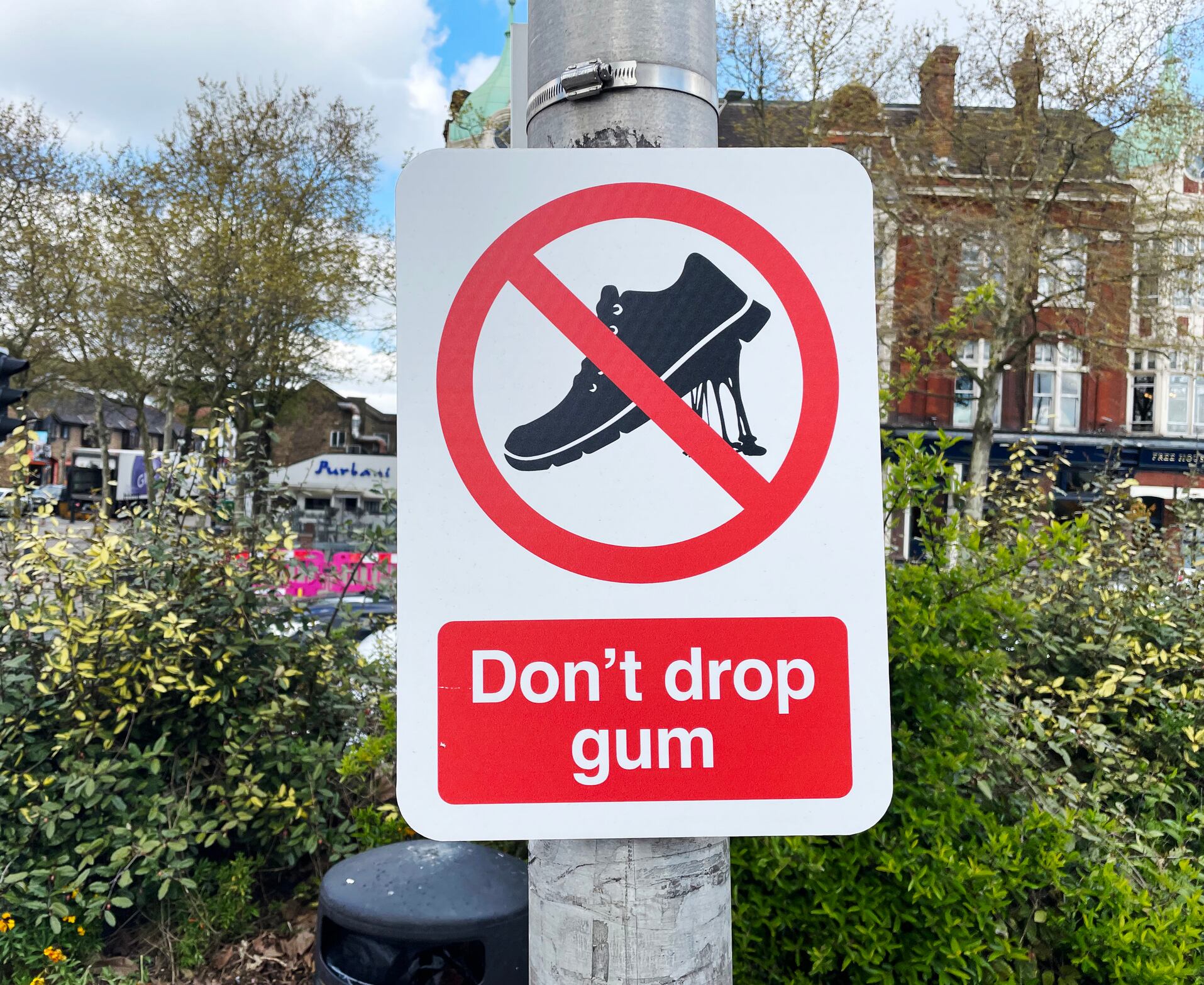Most consumers are unaware that chewing gum is a single-use plastic – that’s one of the leading messages that plastic campaigners have highlighted in their recent open letter to the UK government. “Chewing gum is made of plastic,” a spokesperson for plastic-free chewing gum company Nuud Gum says. “Every piece contains up to a drinking straw’s worth of plastic hidden within the ingredients, which is totally bonkers,” the spokesperson adds.
More than 99% of chewing gum sold in the UK is made of plastic, with Brits chewing about four billion pieces every year. Now, representatives from several charities are calling for an end to plastic gum in the leading confectionery sector. The campaigners emphasise that this trend is reflected globally, with the gum market controlled by a small number of major players, all of which have portfolios dominated by plastic chewing gum.
Calling for a ban on plastic chewing gum
On February 12, 2025, leading plastic campaigners wrote an open letter to the UK government asking if it’s “time to ban plastic gum”. A host of charities signed and sent the letter to Steve Reed, Secretary of State for Environment, Food and Rural Affairs, demanding a response to the confectionery sector’s ongoing plastic pollution problem.
Plastic Health Council, Kids Against Plastic & Plastic Clever Schools, City to Sea, Plastic Free July, Everyday Plastic and Common Seas call on the UK government to provide an adequate response.
A key problem is that the term “gum base”, which features on many confectioners’ product ingredient lists, consists of synthetic materials such as polyethylene (often used in plastic bags), polyvinyl acetate (contained within PVA glue) and butadiene-styrene rubber (typically used in car tyres).

Behind City to Sea and Nuud’s campaign is a desire to raise awareness about the plastic materials found in chewing gum. The charities argue that consumers have the right to have all the relevant information about the chewing gum products they consume and access to better non-plastic varieties. The leading plastic campaigners and charities are seeking a ban on plastic gum, urging the government to recognise the need to stem the tide of plastic production and waste to protect and preserve the planet. Addressing their concerns in their open letter marks the charities’ start of its ’Chew Plants Not Plastic’ campaign.
“Plastic pollution isn’t just an environmental crisis – it’s a human health emergency,” says Jane Martin, CEO at City to Sea. “It’s time for the UK to take the final stand against plastic gum and pollution for the health of people and the planet,” details Martin.
“Big gum is today’s big tobacco and is responsible for a major health and plastic-pollution crisis,” says Keir Carnie, Founder of Nuud. “Plastic gum manufacturers have proven unwilling to change their damaging ways, so we’re calling on the Government to address this four billion piece per year problem and ban the sale of plastic gum,” Carnie adds.
Putting an end to the plastic chewing gum problem
Waste is an additional problem caused by plastic pollution. “Chewing gum is a hidden single-use plastic that contributes to massive environmental pollution,” says Nuud’s spokesperson. The duo highlights how the UK chews and discards 12 tonnes of gum daily. Responsible waste management does not remove the problem of waste plastic gum, which still ends up on our streets, in landfills and in waterways. “Gum is also a major contributor to plastic pollution sticking around to harm our planet and costing local councils millions annually in cleanup efforts,” Nuud’s spokesperson adds.
Removing plastic gum, the campaigners argue, makes good economic sense too. A total of 87% of UK pavements are affected by gum litter, costing taxpayers millions of pounds yearly. “Once discarded, gum doesn’t biodegrade, it simply breaks down into microplastics, further contaminating the planet and endangering human health,” Nuud’s spokesperson says. “Taxpayer money is wasted on street cleaning, and our ecosystems suffer from microplastic contamination,” the spokesperson adds.

Plastics that enter our bodies are the same as those used to make car tyres, carrier bags, and glue. “Microplastics have been found throughout the human body and linked to serious diseases, yet chewers are unknowingly chewing plastic gum,” says Nuud’s spokesperson. A new research study published in Nature Medicine in February 2025 found that the human brain may contain as much as a spoon’s worth of microplastics.
Seeking plastic-free gum innovations
If the charities’ calls are answered, consumers may see new plastic-free formulations enter the market in their place. If the UK government accepts and approves the plastic-based arguments, producers will likely pursue a range of new, engaging and environmentally-conscious gum innovations.
The plastic-free campaigners want to see:
● A transition to plastic-free, sustainable gum
● The use of natural ingredients such as chicle and other plants
● Large manufacturers innovate responsibly, investing in plant-based gum bases that do not harm the environment.
Despite the global presence of plastic gum, limited campaigns exist to fight against their production. “It’s shocking that there aren’t more campaigns specifically targeting plastic gum given its environmental impact,” says Nuud’s spokesperson. Plastic-free gum advocates see their campaign as starting an important global movement to spur further action against hidden single-use plastics in everyday products.
“While bans on items like single-use vapes and plastic straws have paved the way for change, the lack of focus on gum underscores the urgent need for a broader shift in government legislation and industry practices,” says Nuud’s spokesperson.
“Major manufacturers have favoured hiding these plastic ingredients and are unwilling to change,” Nuud’s spokesperson says. “A ban will accelerate the switch to sustainable and healthy alternatives, reducing waste and protecting people and the planet.”

